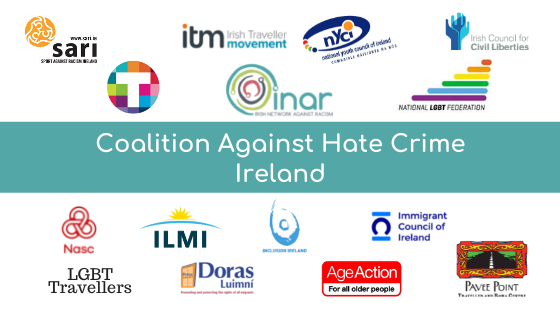A letter from 20 civil society organisations (NGOs) “representing groups commonly targeted by hate crime in Ireland” was published in the Irish Times [26/03/23], expressing unequivocal support for the Incitement to Violence or Hatred and Hate Offences Bill 2022.
The letter informs us that “Hate crimes are message crimes: they tell members of minority communities they are not safe. A single action goes beyond the individual person targeted, hurting entire communities and society as a whole.”

The Coalition the 20 NGOs have formed
Leaving aside the fact that it is far from obvious how a single crime that is motivated by hate manages to hurt entire communities and society as a whole, is there some irrefragable reason why someone who is not a member of a minority community couldn’t also be a victim of a hate crime?
According to the signatories of the letter, the legislation is to be welcomed because it recognises “the additional harm caused by a crime that targets a person’s inherent identity…”
Might I suggest that it’s not obvious what this additional harm might be and, even if there were any such harm, why it should be more worthy of legal sanction than forms of additional harms from psychological attitudes such as envy, jealousy or covetousness that other crime victims might suffer?
The tenor of the letter clearly indicates that its signatories regard the Bill as a legislative instrument to punish and inhibit what they regard as a kind of group-crime. Putting to one side the not inconsiderable difficulty with understanding how a crime against an individual can be, as it were, a crime against a whole group, it is also not easy to see how according specific groups special privileges that are not accorded to the population at large sits easily with article 40.1 of the Constitution which reads: “All citizens shall as human persons, be held equal before the law.”
article 40.1 of the Constitution reads: “All citizens shall as human persons, be held equal before the law.”
In any case, the signatories to this letter are happy to assure us that “the vast majority of the population recognises hate crime as a high priority in policing.”
Really? I don’t know how they can claim to know this to be the case, and those who signed the letter are modestly reticent about providing evidence for it. That being so, I hope I won’t be considered rude if, despite their breezy assurance, I remain sceptical about the veracity of this claim.
